BOOK EXTRACT
Joining the Dots: Pravin Gordhan, Floyd Shivambu and the dodgy origins of the ‘Indian cabal’ narrative

In April 2017, Pravin Gordhan addressed a packed audience in St George’s Cathedral in Cape Town, a week after President Jacob Zuma had fired him as finance minister, a move that signalled South Africa had been well and truly captured. Gordhan urged the crowd not to give up hope and to ‘join the dots’ in understanding what was taking place. He became a moral authority to many – and the object of a concerted smear campaign. In this unauthorised biography, Jonathan Ancer and Chris Whitfield take a magnifying glass to someone at the centre of South Africa’s most tumultuous period and try to understand the man behind the public image.
In October 2018, EFF deputy president Floyd Shivambu decided to pick away at a long-standing South African sore: the relationship between African and Indian.
Tensions between the two groups have sometimes been a source of conflict and have occasionally erupted into violence, the most notable being the horrifying assaults on Indians in Durban in 1949 – the so-called Cato Manor riots. More than 140 people died in violence that lasted three days and was reportedly cheered by white residents. South Africans might generally have since embraced the Constitution’s edicts on non-racialism, but that hasn’t stopped populist politicians from occasionally attempting to exploit historical grudges.
In a lengthy and rambling blog post – which he modestly described as an “insightful polemic” – Shivambu resurrected suggestions that a “cabal” had had undue influence over the Mass Democratic Movement (MDM) in the 1980s and early 1990s.
But his real target was Pravin Gordhan, and in that respect Shivambu was anything but nuanced: “The cabal was basically an Indian cabal that was put in place to slander the character and standing of African comrades in the MDM, and it was led by Pravin Gordhan,” said the EFF’s number two. “Even when the MDM was confronted with a common enemy – the white settler colonial state – Pravin was keen on sowing divisions within MDM structures, [to] undermine and denigrate the role of mostly African leadership in the mass movement. The essence of Pravin’s ideological and political outlook was and remains collaboration with existing capitalist interests and undermining the overall leadership of the movement.”
Shivambu argued that the “cabal” still exists and named its “inner circle” as Gordhan, Ismail Momoniat (whom he described as “the Deputy Director General in National Treasury responsible for everything”), and Reserve Bank Deputy Governor Kuben Naidoo. Former finance minister Trevor Manuel “provides the link between the cabal and the capitalist establishment”.
His article was based largely on a curious document in the O’Malley Archives called the “Report of the Commission on the Cabal”. The archives contain documents and transcripts of the more than two thousand hours of interviews Padraig O’Malley conducted with South Africans about the transition to democracy. O’Malley has also written a biography on Mac Maharaj.
The “Report of the Commission on the Cabal” document begins with a conclusion: “The problems of disunity within the ranks of the MDM due to the manipulating role of certain Indians and whites regarded as leaders in the Struggle, has reached a level of such seriousness that it is clear that we need to address it immediately and decisively.”
It explains that “a commission was mandated to discuss the problem and make recommendations towards its resolution” and adds, “We would however like to stress that this document is neither meant for public consumption nor is it intended to serve as a communiqué to be distributed.”
It’s unclear who authored this supposed report, dated 14 March 1990, and the copy in the O’Malley Archives ends in the middle of a sentence. The site warns that the document is “incomplete”. This apparently didn’t put Shivambu off his stride and he suggested that “it appears that Mr [Mac] Maharaj drafted the report”. Maharaj, speaking to the Mail & Guardian’s Franny Rabkin in March 2019, said he had “no knowledge of, or participation in, the preparation of this so-called report”. The newspaper quoted him as saying that it was a “very strange document to [appear] in March 1990 – just after the ANC, MK and SACP were unbanned”.
“Over the years as a Congress activist, PG had contributed to building organisations and capacity both in the underground and in the Mass Democratic Movement, working with comrades from all communities in many anti-apartheid campaigns. Insofar as this purported report maligns any of the people named in it, it is a complete distortion of the reality. It is a misuse of the document to dub Pravin as a mischief-maker and a cabalist,” he told the newspaper.
Billy Nair tells O’Malley that the allegations of a cabal were a “cheap trick to divide the organisation and to make up for the lack of political maturity”. “Some people not conversant with the dynamics of the movement felt that there was a secret organisation, a cabal operating within the Indian Congress or the UDF because it took a particular position on issues,” Nair told O’Malley. “Pravin Gordhan was accused of being a leader of the cabal. We said, ‘OK, what did he say, what did he do?’ If you talk about a leader of the cabal, let’s look at the substance and tease that out.”
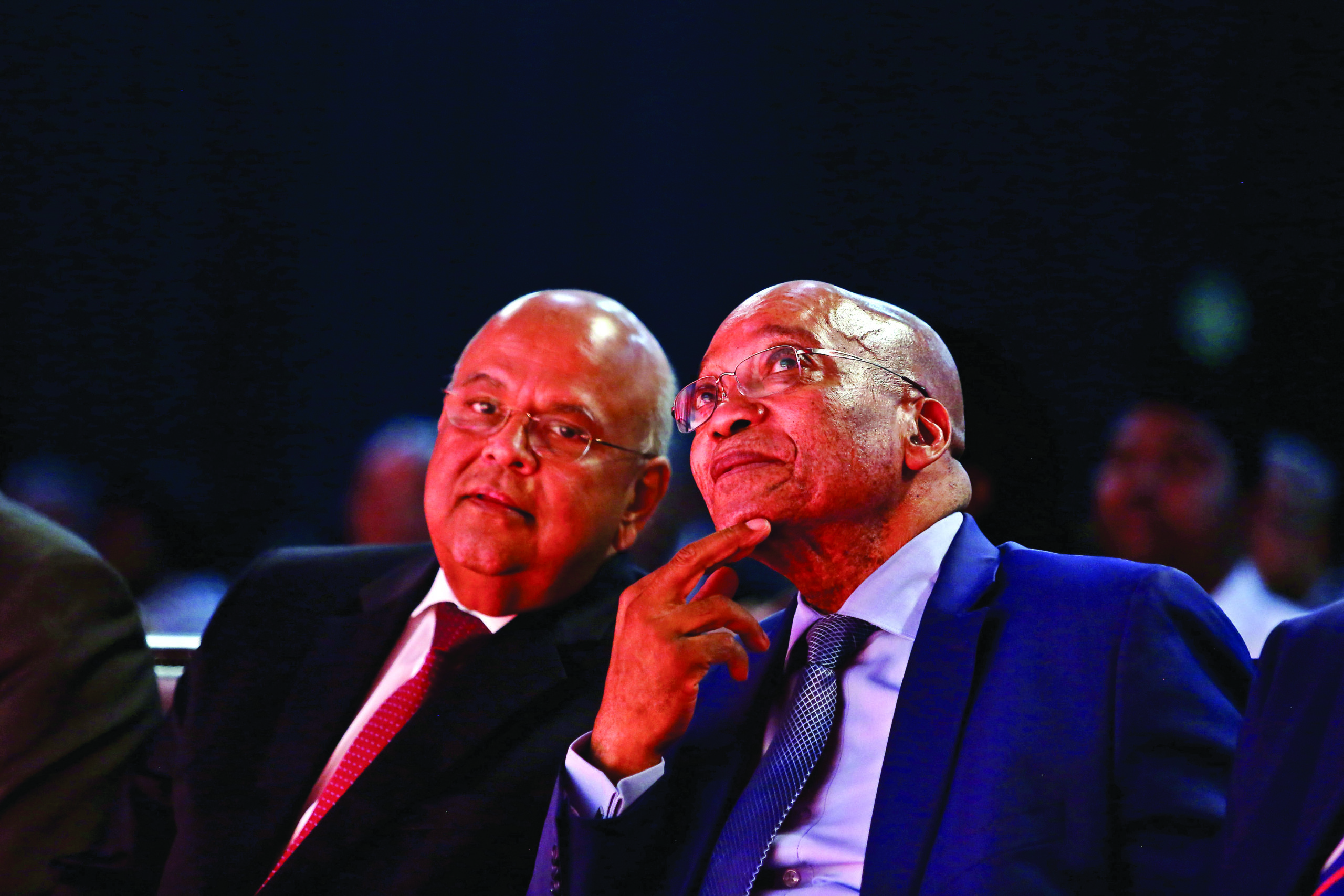
Former minister Pravin Gordhan and former president Jacob Zuma during the South African Local Governance Association conference on 24 March 2015 at Gallagher Estate in Johannesburg, South Africa. (Photo: Gallo Images / The Times / Moeletsi Mabe)
Kumi Naidoo, a Durban-born human-rights activist who gained international renown as the executive director of Greenpeace, wrote his doctoral thesis at the University of Oxford on Indian political resistance in Durban between 1979 and 1996. In it he teases out the origins of the cabal allegations.
He points to conflicts in NIC (Natal Indian Congress) and UDF politics over issues such as boycotts and the relationship with the tricameral Parliament, and says that these tensions manifested themselves in different ways at the local level. “For example, some Chatsworth activists adopted an antagonistic position towards the potential of ‘control by the town grouping’ led by Pravin Gordhan.”
He cites criticism that the NIC was too “issue-orientated”, and “cliqueism” and “infighting” as among the perceived concerns. “In particular, an observation was made that the organisation’s practice was dominated by a ‘Chemist Grouping’ [Gordhan was a chemist], and a few people who met regularly at his pharmacy were believed to unduly influence the organisation.”
It was this chemist/town grouping that became known as the cabal. “A joke at one factory suggested that NIC policy under Dr Monty Naicker was ‘just what the doctor ordered’, but under George Sewpersad, a lawyer, NIC policy was ‘just what the chemist [in reference to Gordhan] ordered!’”
Naidoo says that some senior NIC executives “claimed that they were excluded from activities, seldom notified of meetings, and were not consulted on key issues”.
He points out that five Chatsworth branches and the one Phoenix branch were part of the ANC’s first regional conference in 1991, “when four Indians were elected to serve on the regional executive committee”.
“Significantly, two NIC/ANC stalwarts, Billy Nair and Pravin Gordhan, were defeated, presumably because of their cabal associations.”
Sandy Africa says that in the late 1980s “there was a feeling that too much power and influence aggregated around [Gordhan’s] person and [that’s where the claims] crept in of him being the leader of a so-called cabal within the NIC. And people also argue that this extended beyond the NIC to other parts of the UDF and the then Mass Democratic Movement.”
She says it was suggested that Gordhan was able to “influence decisions and bypass the structures and a lot of disquiet started to develop around that. But this was an unfortunately divided time in politics. And so… his name was sometimes associated with undue influence, perhaps even divisiveness, although I didn’t experience him as being a divisive leader in any way.”
In June 2018 Shivambu had objected to Ismail Momoniat’s “repeated presence” in parliamentary finance committee meetings and described the Treasury deputy-director as a “non-African” who undermined Africans. His comments were roundly dismissed by many Struggle veterans, who pointed to Momoniat’s long and courageous history of activism.
The man himself appears remarkably sanguine about it but prefers not to engage in the debate. He does, however, also believe the cabal accusations arose from the extraordinary circumstances of the time. “The point is that we would, of course, have had secret meetings and so on in the days of apartheid. We didn’t announce to the security police that we were organising… and so, yes, there was some tension. When there were differences, people said, ‘You guys are a cabal and you guys are imposing your views on us.’ I was also accused of being part of the cabal.
“I think we had to operate in a particular way. And we operated on the basis of need to know. We didn’t announce to everyone that we had contact with the ANC [or that we had] got our secret cells. I mean, you would’ve been charged with treason. But before you even got charged, you would’ve been beaten to a pulp.”
Gordhan is of the view that the charge arose from the particular conditions of the time: “You know, small groups of people did operate [and] some did get pissed off because they weren’t part of it or they felt the influence of all of these developments. And when it was convenient, it later became a swear word.
“But as you know, every political or social formation of any kind will have what today you call factions, or groups of people who share a particular interest. So somebody wants to vote for Jonathan as a chair of the soccer club. Others want to vote for Chris. You’ll have a support base and he’ll have a support base. Each of you will meet secretly to see how you can mobilise others. So, essentially, you have two cabals operating.”
But why was the cabal narrative resurrected in 2018? Nomboniso Gasa, adjunct professor of public law and senior research associate at the University of Cape Town, wrote on the issue for City Press in November 2018 – the month after Shivambu’s blog. Her article was headlined “‘Indian cabal’ narrative is to protect the looting project.”
She pointed out that by virtue of his previous positions as SARS commissioner and finance minister, Gordhan has been on the frontline of the fight against those who pillaged the state. Addressing the ANC, she added, “There is a need to give personal and political support to whomever range themselves against the thieves. That would be leadership. Instead, Gordhan is subjected to a range of attacks, some of them completely racist, personalised or inaccurate. Some of these attacks have relied heavily on South Africa’s race politics, distorting the history of the ANC, the Mass Democratic Movement and the United Democratic Front, especially in the 1980s, and the so-called cabal.” ML/DM
Joining the Dots is published by Jonathan Ball. Jonathan Ancer is an award-winning journalist who has worked as a reporter at The Star, a features writer for magazines and a crossword columnist. This is his fourth book. Chris Whitfield has been a journalist for 40 years and is a former editor of the Cape Times, the Cape Argus, the Weekend Argus and acting editor of The Witness and the Daily Sun. Prior to becoming an editor, he was a political correspondent for The Star. This is his third book. Both are based in Cape Town.

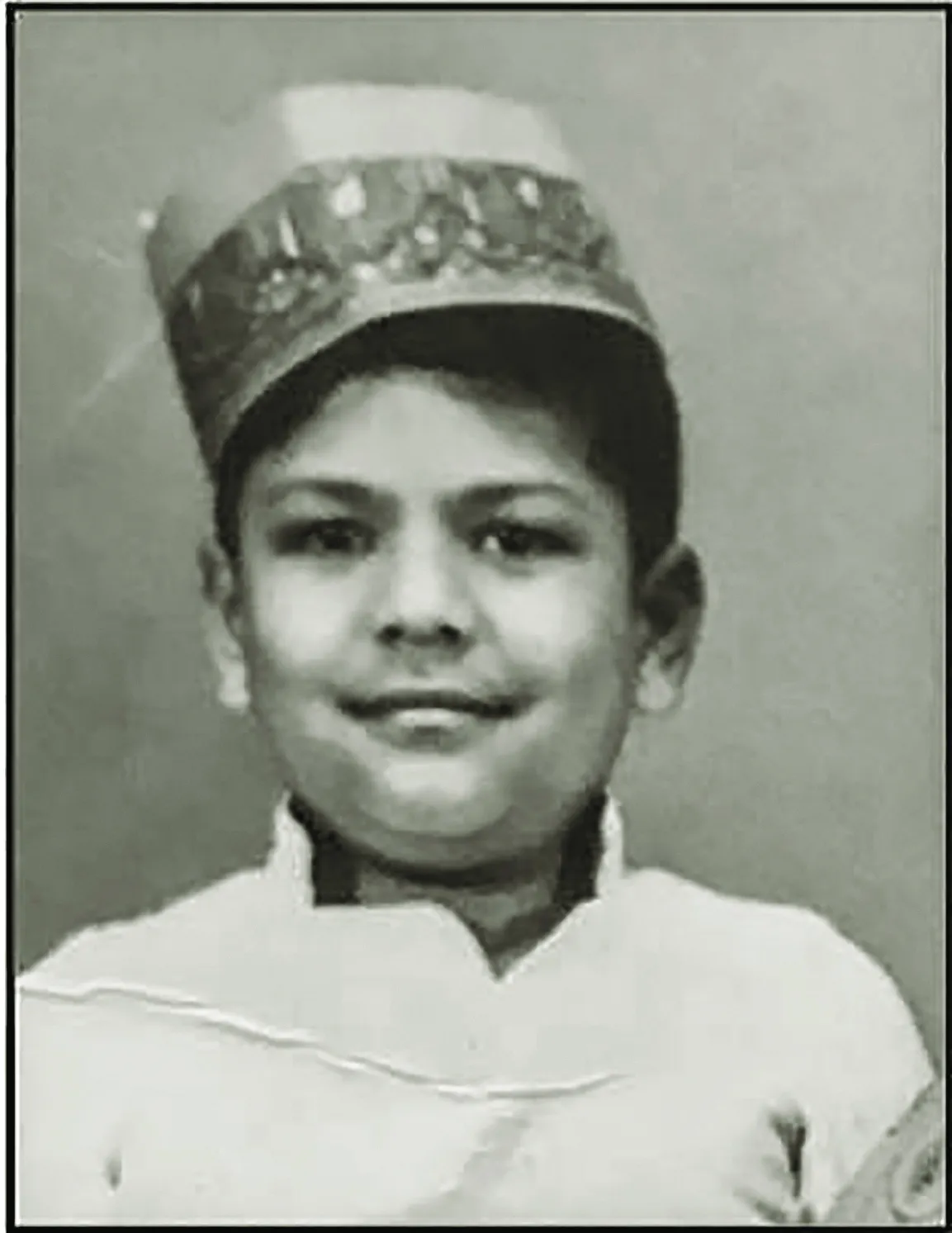
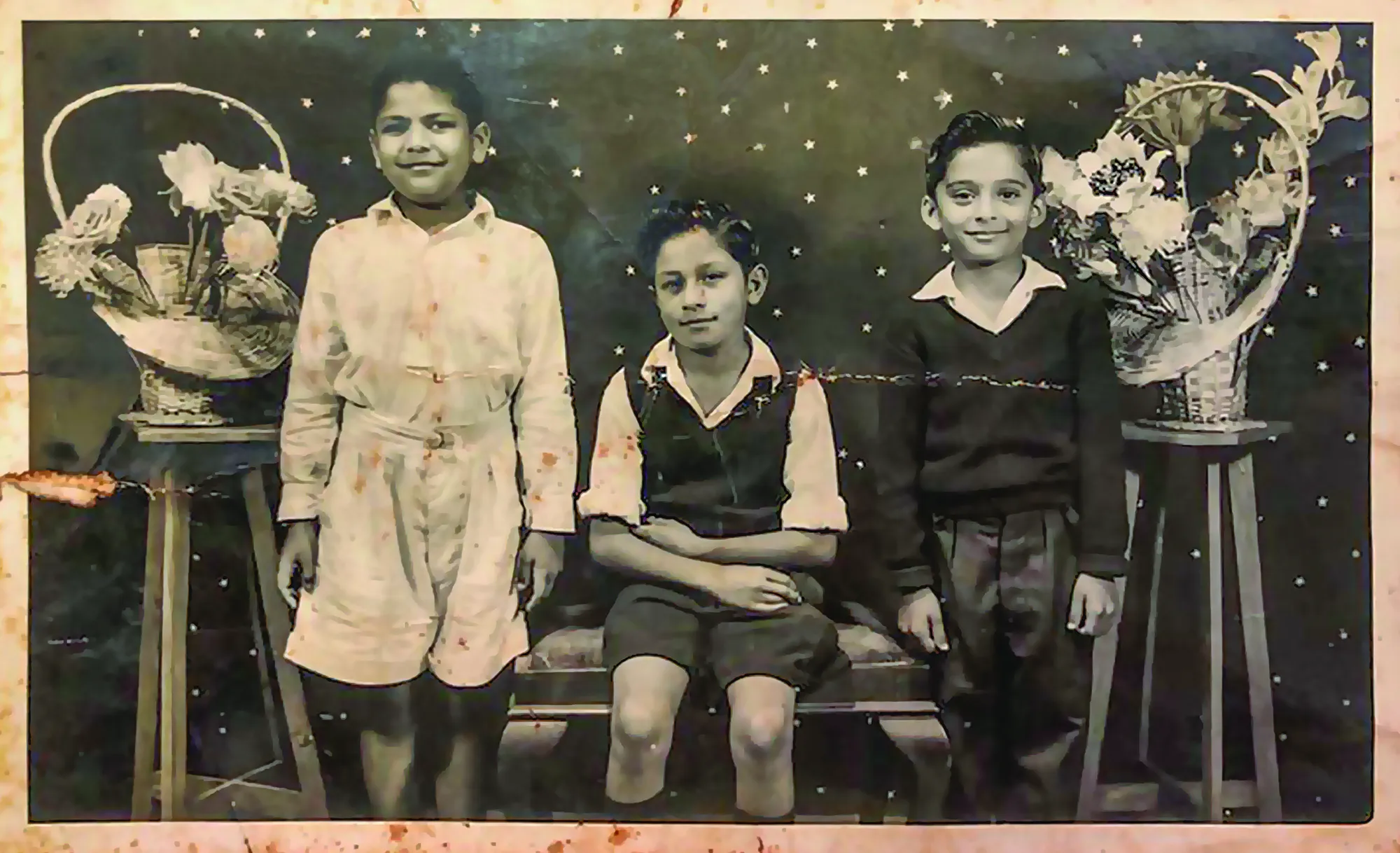
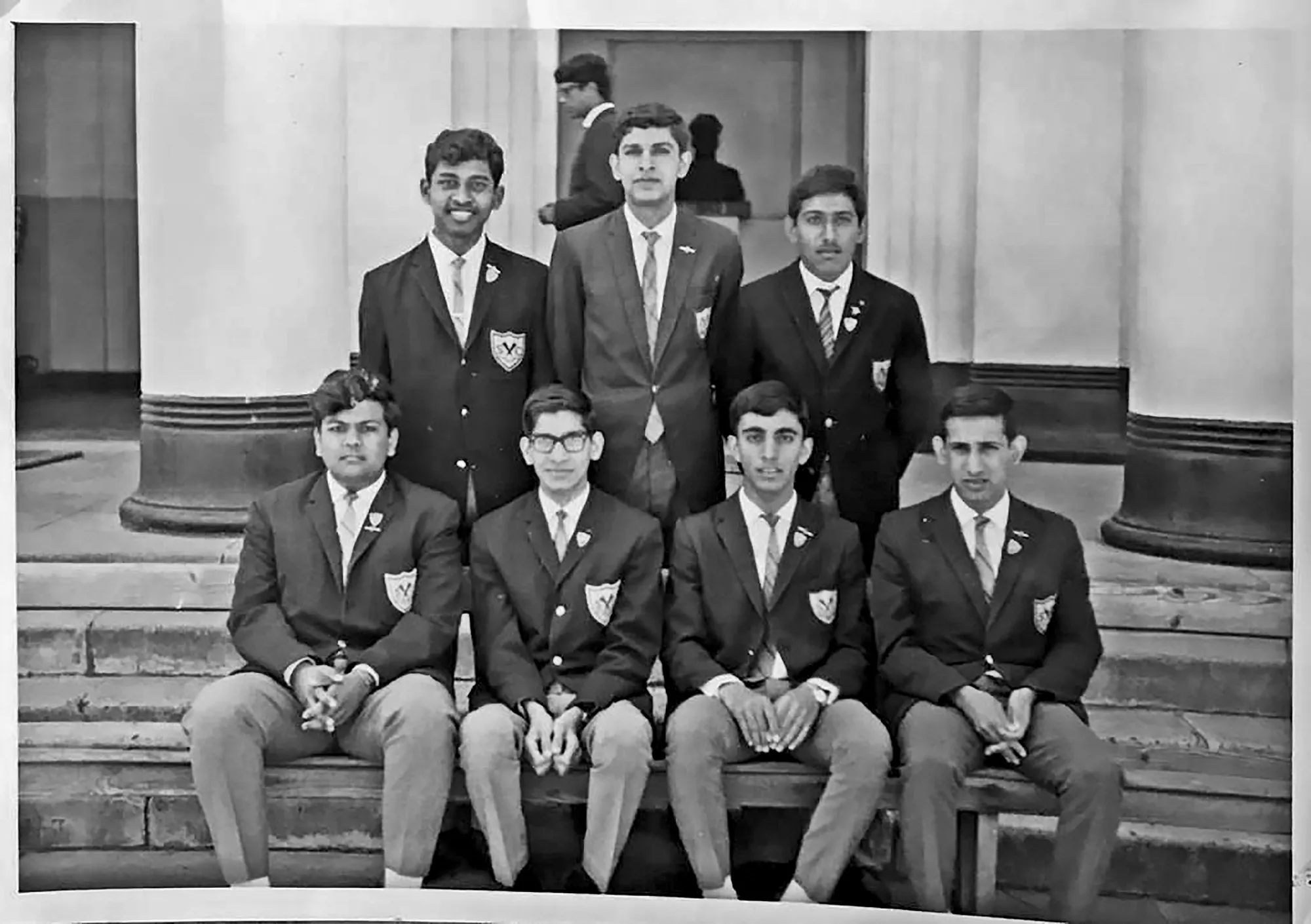
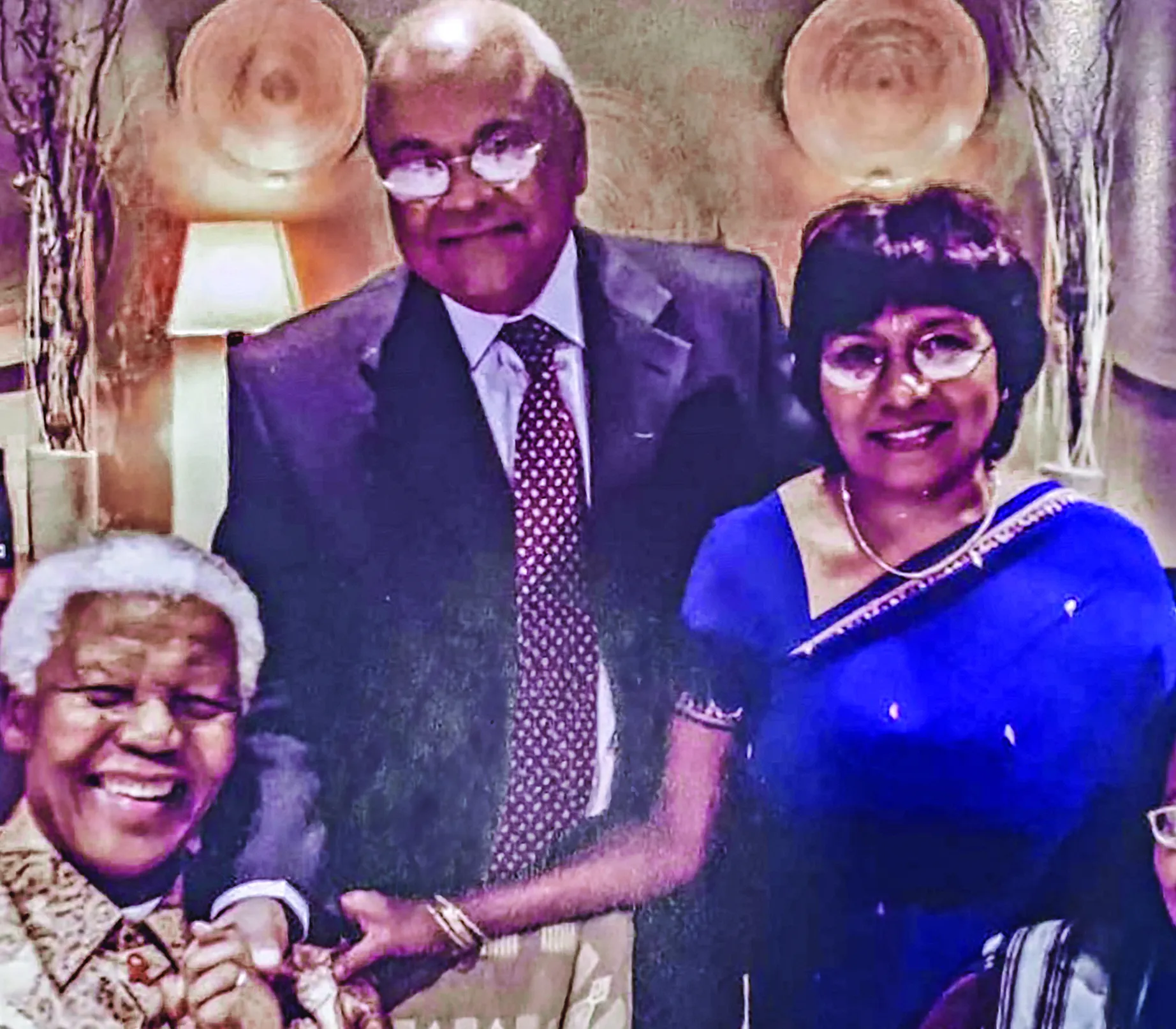














 Become an Insider
Become an Insider
Poor Pravin. Educated – must be destroyed. Intelligent – must be destroyed. Honest and Honourable- must be destroyed. Unfortunately Floyd has repeatedly exposed the lack of these qualities in his own ‘cabal’ and, no doubt, this will have an effect on the next election.
Could not agree with you more. One of the few really good, honourable guys we have..
Just look at the mess our country is in..
One can’t deny he was one of the few to stand up and be counted during Zuma’s reign of ruin. But a tough question that needs to be asked; what has Pravin actually achieved in his long stint as Minister responsible for SOE’s? There is not a single success story! He follows the mantra of his Cabinet buddies; talk, promise, talk some more, promise some more and inevitably nothing actually improves.